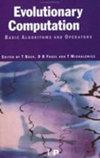用随机束搜索求解巡回比赛问题
IF 3.4
2区 计算机科学
Q2 COMPUTER SCIENCE, ARTIFICIAL INTELLIGENCE
引用次数: 1
摘要
巡回赛问题是一个著名的体育联赛调度问题,其实际难度较大。假设参赛队伍的数量为偶数,且参赛队伍之间的距离对称,那么双轮循环赛的安排必须使所有队伍的总行程距离最小。我们考虑了最常见的无中继器约束变体和条带限制为3的约束变体,为此我们研究了一种基于由不同下界变体派生的启发式指导的状态空间公式的波束搜索方法。我们可以精确地解决多达18个团队的中小型实例或启发式地解决多达24个团队的大型实例中出现的有能力车辆路由子问题。在搜索的随机化变体中,我们采用随机团队排序,并在执行多次运行时向节点的多样化指导添加少量高斯噪声。这允许一个简单而有效的波束搜索并行化。最后对NL、CIRC、NFL和GALAXY的12至24支球队进行了比较,我们报告了最知名可行解决方案的平均差距差异为1.2%,以及五个新的最佳可行解决方案。本文章由计算机程序翻译,如有差异,请以英文原文为准。
Approaching the Traveling Tournament Problem with Randomized Beam Search
The traveling tournament problem is a well-known sports league scheduling problem famous for its practical hardness. Given an even number of teams with symmetric distances between their venues, a double round-robin tournament has to be scheduled minimizing the total travel distances over all teams. We consider the most common constrained variant without repeaters and a streak limit of three, for which we study a beam search approach based on a state-space formulation guided by heuristics derived from different lower bound variants. We solve the arising capacitated vehicle routing subproblems either exactly for small- to medium-sized instances up to 18 teams or heuristically also for larger instances up to 24 teams. In a randomized variant of the search, we employ random team ordering and add small amounts of Gaussian noise to the nodes' guidance for diversification when multiple runs are performed. This allows for a simple yet effective parallelization of the beam search. A final comparison is done on the NL, CIRC, NFL, and GALAXY benchmark instances with 12 to 24 teams, for which we report a mean gap difference to the best known feasible solutions of 1.2% and five new best feasible solutions.
求助全文
通过发布文献求助,成功后即可免费获取论文全文。
去求助
来源期刊

Evolutionary Computation
工程技术-计算机:理论方法
CiteScore
6.40
自引率
1.50%
发文量
20
审稿时长
3 months
期刊介绍:
Evolutionary Computation is a leading journal in its field. It provides an international forum for facilitating and enhancing the exchange of information among researchers involved in both the theoretical and practical aspects of computational systems drawing their inspiration from nature, with particular emphasis on evolutionary models of computation such as genetic algorithms, evolutionary strategies, classifier systems, evolutionary programming, and genetic programming. It welcomes articles from related fields such as swarm intelligence (e.g. Ant Colony Optimization and Particle Swarm Optimization), and other nature-inspired computation paradigms (e.g. Artificial Immune Systems). As well as publishing articles describing theoretical and/or experimental work, the journal also welcomes application-focused papers describing breakthrough results in an application domain or methodological papers where the specificities of the real-world problem led to significant algorithmic improvements that could possibly be generalized to other areas.
 求助内容:
求助内容: 应助结果提醒方式:
应助结果提醒方式:


